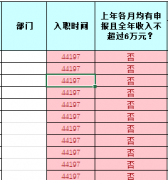问题描述
假设我有实体 $e.是否有任何通用方法将其存储为另一行,该行将具有相同的实体数据但另一个主键?
Let's say I have entity $e. Is there any generic way to store it as another row, which would have the same entity data but another primary key?
为什么我需要这个:我正在实施某种临时数据库架构,而不是更新我只是需要创建另一个.
Why I need this: I'm implementing some sort of Temporal Database schema and instead of updating the row I just need to create another one.
推荐答案
尝试克隆并将以下方法添加到您的实体中
Try cloning and add the following method to your entity
public function __clone() {
$this->id = null;
}
您可能需要分离 实体.我现在手边没有我的开发机器来测试这个.
You may need to detach the entity before persisting it. I don't have my dev machine handy to test this right now.
$f = clone $e;
$em->detach($f);
$em->persist($f);
$em->flush();
更新
刚刚尝试使用一个简单的 SQLite 演示.你不应该需要做任何事情.以下对我有用,无需添加 __clone() 方法或做任何其他不寻常的事情
Update
Just tried using a simple SQLite demo. You shouldn't need to do anything. The following worked for me without adding a __clone() method or doing anything else out of the ordinary
$new = clone $old;
$em->persist($new);
$em->flush();
刷新后,$new 实体有一个新 ID,并在数据库中保存为新行.
Once flushed, the $new entity had a new ID and was saved as a new row in the DB.
我仍然会通过 __clone() 方法将 ID 属性设为空,因为从纯模型视图来看它是有意义的.
I would still null the ID property via the __clone() method as it makes sense from a pure model view.
深入 Doctrine 代码,这是因为生成的代理类使用这一重要行实现了 __clone()
Digging into the Doctrine code, this is because the generated proxy classes implement __clone() with this important line
unset($this->_entityPersister, $this->_identifier);
这篇关于如何将实体重新保存为 Doctrine 2 中的另一行的文章就介绍到这了,希望我们推荐的答案对大家有所帮助,也希望大家多多支持跟版网!



 大气响应式网络建站服务公司织梦模板
大气响应式网络建站服务公司织梦模板 高端大气html5设计公司网站源码
高端大气html5设计公司网站源码 织梦dede网页模板下载素材销售下载站平台(带会员中心带筛选)
织梦dede网页模板下载素材销售下载站平台(带会员中心带筛选) 财税代理公司注册代理记账网站织梦模板(带手机端)
财税代理公司注册代理记账网站织梦模板(带手机端) 成人高考自考在职研究生教育机构网站源码(带手机端)
成人高考自考在职研究生教育机构网站源码(带手机端) 高端HTML5响应式企业集团通用类网站织梦模板(自适应手机端)
高端HTML5响应式企业集团通用类网站织梦模板(自适应手机端)